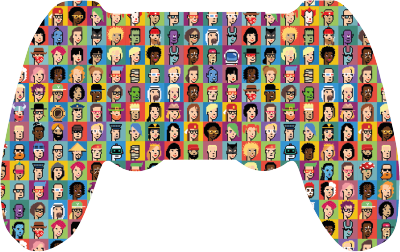Video Games in Times of Climate Crisis. From Aesthetics to Ethics.
Sonia Fizek (TH Köln, Cologne Game Lab)
It was high summer 2022. In many regions of Europe and worldwide, temperatures reached record heights. France suffered under unprecedented wildfires, with over 62,000 hectares of flora burned by the end of August 2022. Meanwhile, players of the Riders Republic (Ubisoft 2021), a major multiplayer sports video game, engaged in digital reforestation. They planted virtual trees, bringing to life an entirely new forested area that stayed in the game for others to experience long after the event had come to an end. The Riders Republic Rebirth event culminated in the first ever in-game climate march. The project was conceptualized in 2021 during a Green Game Jam, organized by the Playing for the Planet Alliance, the Environmental Program of the United Nations. Boris Maniora, Riders Republic gameplay director, believes that green activations such as Rebirth show the empowering impact games can have on their players.
However, video games are not only drivers of climate positivity or simulations of stunning natural settings. They are as much objects of culture as they are of nature. As virtual, immaterial and clean as they are portrayed within the framework of postindustrial capitalism (Maxwell and Miller 2012, 5), they are literally made out of natural resources and material labour. Video games rely on technologies and production dynamics that make those media possible in the first place. They are “finite resources in the closed system of planet Earth” (Cubitt 2017, 7).
This talk is an invitation to rethink video games and gaming within the context of climate crisis and environmental sustainability. It will map out the diverse intersections between the environment and video games: from representations of nature in games to eco-critical design and the materiality of digital technology.
Sources
Maxwell, R., and T. Miller. 2012. Greening the Media. Oxford: Oxford University Press.
Cubitt, S. 2016. Finite Media. Environmental Implications of Digital Technologies. Durham, NC: Duke University Press.
Short bio
Sonia Fizek is a games and media scholar. She holds a professorship in Media and Game Studies at the Cologne Game Lab at TH Köln – University of Applied Sciences. Fizek is also a visiting professor at the University of Lower Silesia in Wroclaw (Poland), a co-editor-in-chief of the international Journal of Gaming and Virtual Worlds, and a newly appointed DiGRA Sustainability Officer for the Digital Games Research Association. In her book Playing at a Distance (MIT Press 2022), she explores the borderlands of video game aesthetic with focus on automation, AI and posthuman forms of play. Fizek’s current research concentrates on the environmental sustainability of video games. She is a principal investigator of “Greening Games. Building Higher Education Resources for Sustainable Video Game Production, Design and Critical Game Studies” (2021-2024, https://greeningames.eu) and a scientific lead in the project “STRATEGIES. Sustainable Transition for Europe’s Game Industries” (2024-2027, https://www.strategieshorizon.eu).
For more information on all of our keynotes, go to our keynote page.

